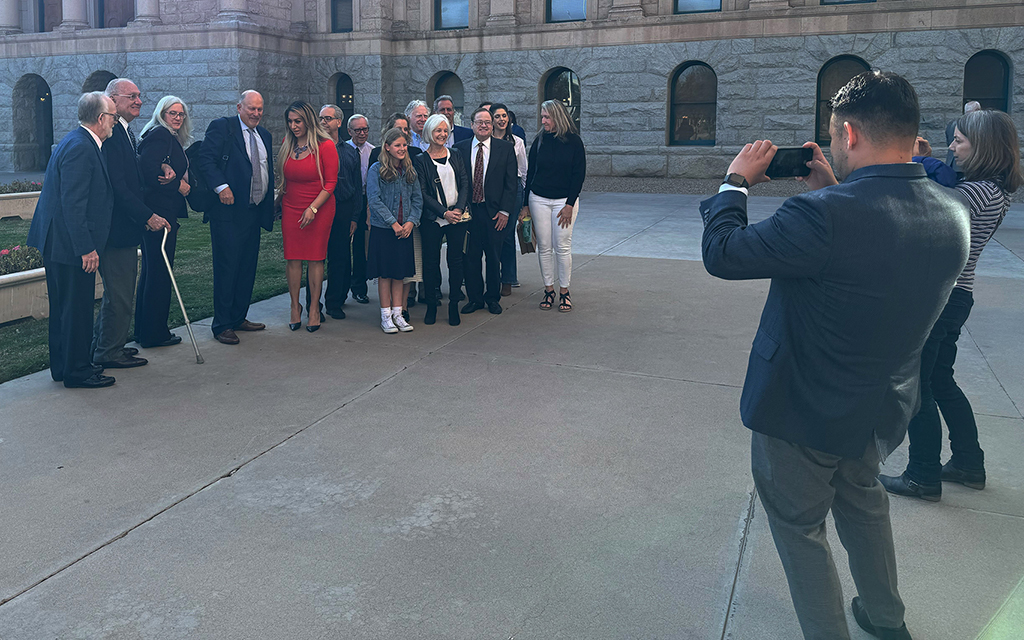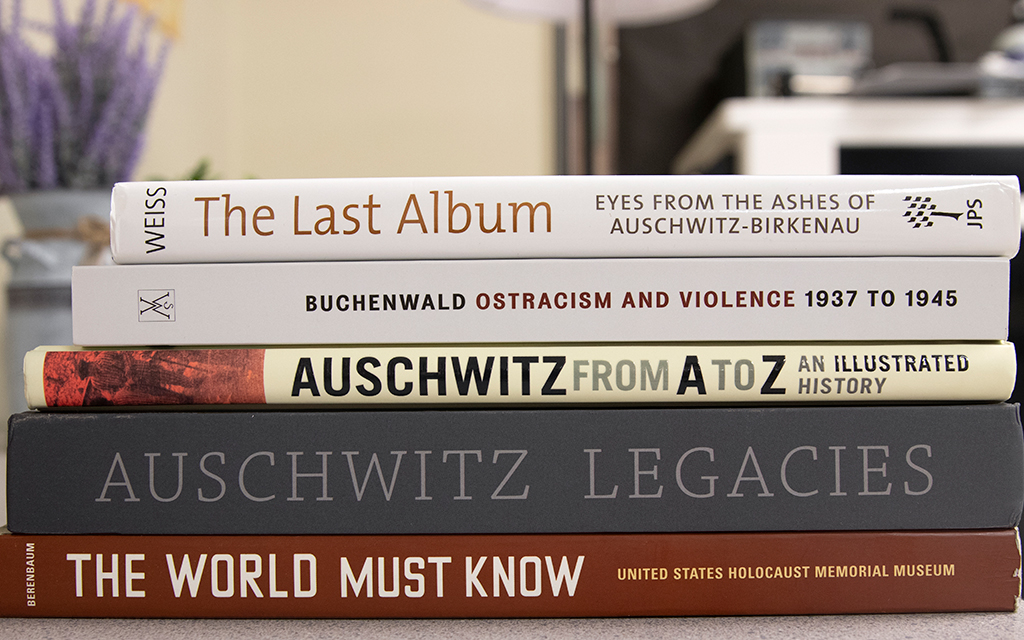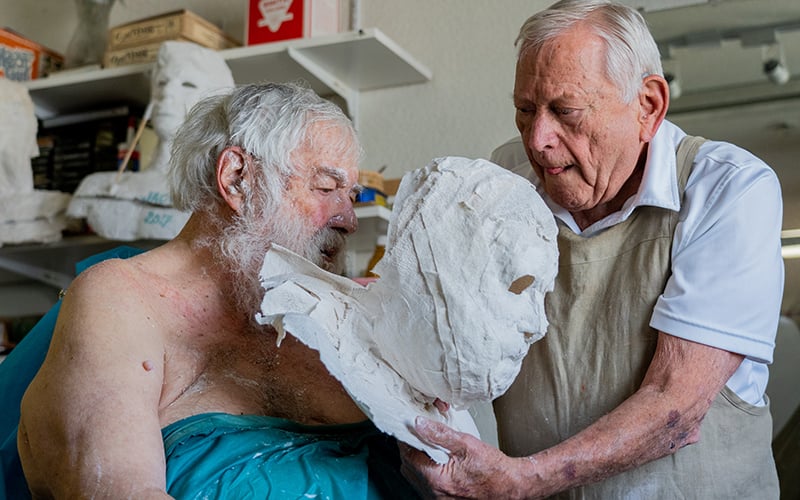PHOENIX – A House panel gave tentative approval Wednesday to a Holocaust education center, but not before stripping out funding for the project that supporters said will provide an “immersive experience for the next generation on hate and genocide.”
Lawmakers on the House Appropriations Committee, mindful of the current budget shortfall, stripped out $10 million in state funding that was called for in the bill. But committee members, who overwhelmingly approved the amended bill, said they are confident they will be able to fill in a number as the session progresses.
The temporary loss of funding did not appear to dampen the spirits of supporters of the planned Hilton Family Holocaust Center, which they said will allow students “to touch and feel history” of the Holocaust and other genocides.
“I believe the fight for the future is grounded in knowledge and education,” said Steve Hilton, the son of a Holocaust survivor, whose family is helping fund the center. “It will be designed to create an immersive experience for the next generation on hate and genocide.”
Testimony included references to reports like a 2021 nationwide survey that found a “disturbing” 63% of 11,000 U.S. millennials and members of Generation Z did not know 6 million Jews died in the Holocaust, and 10 percent did not believe the Holocaust occurred.
Phoenix Hebrew Academy sixth-grader Ruby Stanlis got an ovation from the attentive committee and a packed hearing room after her testimony.
“We are already forgetting the history of the Holocaust. Mistruths about religion spread so quickly through social media,” Ruby said. “A Holocaust center will give students the chance to touch and feel history.”
The bill comes three years after the state began requiring lessons about the Holocaust and genocide be taught at least twice between seventh and 12th grade in Arizona schools.
Dobson High School teacher Kim Klett said she currently has to raise funds if she wants to take her students to Los Angeles’s two Holocaust museums, limiting the trip to just 50 kids. Having a Holocaust education center in the state would let her take her Mesa students on a field trip to the center, she said.
Supporters said that of the 10 largest cities in the U.S. only two – Phoenix and San Diego – do not currently have some sort of Holocaust memorial. If built, the planned $30 million Hilton Family Holocaust Education Center would be the second Holocaust center in Arizona, after the Tucson Jewish Museum and Holocaust Center.
Jerry Lewkowitz, founding member of the Arizona Jewish Historical Society, testified to the importance of educating each future generation.
“L’dor v’dor is a Hebrew saying. It means, from generation to generation. We pass on our beliefs, our values and our history to the next generation,” Lewkowitz said.
That was echoed by Rabbi Jeffrey Schesnol of Or Adam Congregation for Humanistic Judaism in Scottsdale.
“This is the most important thing I will do for the rest of my life,” said Schesnol, who is also director of the Arizona Jewish Historical Society. “‘Rabbi’ means teacher but all of us here today are responsible for teaching.”
The hearing comes amid a surge in antisemitism: The Anti-Defamation League reported that in the weeks after the Oct. 7 Hamas attacks in Israel, there was a 388% increase in hate crimes against Jews over the same from a year earlier. But the bill’s lead sponsor said it’s not just a Jewish thing, it’s about speaking out against hate everywhere.
“I don’t just think it is important for the Jewish community, it is important for everyone.” said Rep. Alma Hernandez, D-Tucson. Her bill has more than 80 co-sponsors in the Legislature.
Hilton said efforts to create a Holocaust center are “the most important thing for the Jewish community for the state of Arizona in its entire history,” while Schesnol said it is important for current generations to bear witness.
“You are not permitted to finish the work, but neither are you to desist from it,” he told a captivated committee.
That was echoed by Ruby, with a more direct call to action.
“Today we all have an opportunity to be upstanders, not bystanders,” she said.



